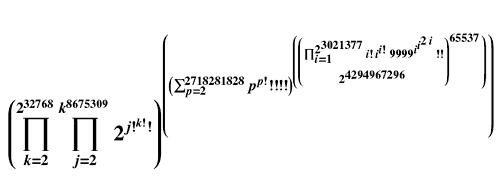
Kernel panic
In Linux, a “panic” is an unrecoverable system error detected by the kernel as opposed to similar errors detected by user space code. It is possible for kernel code to indicate such a condition by calling the panic function located in the header file sys/system.h. However, most panics are the result of unhandled processor exceptions in kernel code, such as references to invalid memory addresses. These are typically indicative of a bug somewhere in the call chain leading to the panic.
1 /*
2 * linux/kernel/panic.c
3 *
4 * Copyright (C) 1991, 1992 Linus Torvalds
5 */
6
7 /*
8 * This function is used through-out the kernel (including mm and fs)
9 * to indicate a major problem.
10 */
11 #include
22 int panic_timeout;
23 int panic_on_oops;
24 int tainted;
25
26 EXPORT_SYMBOL(panic_timeout);
27
28 struct notifier_block *panic_notifier_list;
29
30 EXPORT_SYMBOL(panic_notifier_list);
31
32 static int __init panic_setup(char *str)
33 {
34 panic_timeout = simple_strtoul(str, NULL, 0);
35 return 1;
36 }
37 __setup(“panic=”, panic_setup);
38
39 static long no_blink(long time)
40 {
41 return 0;
42 }
43
44 /* Returns how long it waited in ms */
45 long (*panic_blink)(long time);
46 EXPORT_SYMBOL(panic_blink);
47
48 /**
49 * panic – halt the system
50 * @fmt: The text string to print
51 *
52 * Display a message, then perform cleanups. Functions in the panic
53 * notifier list are called after the filesystem cache is flushed (when possible).
54 *
55 * This function never returns.
56 */
57
58 NORET_TYPE void panic(const char * fmt, …)
59 {
60 long i;
61 static char buf[1024];
62 va_list args;
63 #if defined(CONFIG_ARCH_S390)
64 unsigned long caller = (unsigned long) __builtin_return_address(0);
65 #endif
66
67 bust_spinlocks(1);
68 va_start(args, fmt);
69 vsnprintf(buf, sizeof(buf), fmt, args);
70 va_end(args);
71 printk(KERN_EMERG “Kernel panic – not syncing: %s\n”,buf);
72 bust_spinlocks(0);
73
74 #ifdef CONFIG_SMP
75 smp_send_stop();
76 #endif
77
78 notifier_call_chain(&panic_notifier_list, 0, buf);
79
80 if (!panic_blink)
81 panic_blink = no_blink;
82
83 if (panic_timeout > 0)
84 {
85 /*
86 * Delay timeout seconds before rebooting the machine.
87 * We can’t use the “normal” timers since we just panicked..
88 */
89 printk(KERN_EMERG “Rebooting in %d seconds..”,panic_timeout);
90 for (i = 0; i < panic_timeout*1000; ) {
91 touch_nmi_watchdog();
92 i += panic_blink(i);
93 mdelay(1);
94 i++;
95 }
96 /*
97 * Should we run the reboot notifier. For the moment Im
98 * choosing not too. It might crash, be corrupt or do
99 * more harm than good for other reasons.
100 */
101 machine_restart(NULL);
102 }
103 #ifdef __sparc__
104 {
105 extern int stop_a_enabled;
106 /* Make sure the user can actually press L1-A */
107 stop_a_enabled = 1;
108 printk(KERN_EMERG "Press L1-A to return to the boot prom\n");
109 }
110 #endif
111 #if defined(CONFIG_ARCH_S390)
112 disabled_wait(caller);
113 #endif
114 local_irq_enable();
115 for (i = 0;;) {
116 i += panic_blink(i);
117 mdelay(1);
118 i++;
119 }
120 }
121
122 EXPORT_SYMBOL(panic);
123
124 /**
125 * print_tainted - return a string to represent the kernel taint state.
126 *
127 * 'P' - Proprietary module has been loaded.
128 * 'F' - Module has been forcibly loaded.
129 * 'S' - SMP with CPUs not designed for SMP.
130 * 'R' - User forced a module unload.
131 * 'M' - Machine had a machine check experience.
132 * 'B' - System has hit bad_page.
133 *
134 * The string is overwritten by the next call to print_taint().
135 */
136
137 const char *print_tainted(void)
138 {
139 static char buf[20];
140 if (tainted) {
141 snprintf(buf, sizeof(buf), "Tainted: %c%c%c%c%c%c",
142 tainted & TAINT_PROPRIETARY_MODULE ? 'P' : 'G',
143 tainted & TAINT_FORCED_MODULE ? 'F' : ' ',
144 tainted & TAINT_UNSAFE_SMP ? 'S' : ' ',
145 tainted & TAINT_FORCED_RMMOD ? 'R' : ' ',
146 tainted & TAINT_MACHINE_CHECK ? 'M' : ' ',
147 tainted & TAINT_BAD_PAGE ? 'B' : ' ');
148 }
149 else
150 snprintf(buf, sizeof(buf), "Not tainted");
151 return(buf);
152 }
153
154 void add_taint(unsigned flag)
155 {
156 tainted |= flag;
157 }
158 EXPORT_SYMBOL(add_taint);
159